The biggest small business marketing challenge is learning to do more with less.
Knowing where to focus your efforts and how to manage your budget is vital.
If you’re just starting off, this step-by-step plan is for you. It’s packed with small business marketing strategies to help you grow quickly.
You’ll learn how to prepare your marketing materials and optimize your various channels so you can measure the results.
Along the way, you’ll find simple yet affordable small business marketing ideas and proven strategies you can start implementing today for immediate results.
| 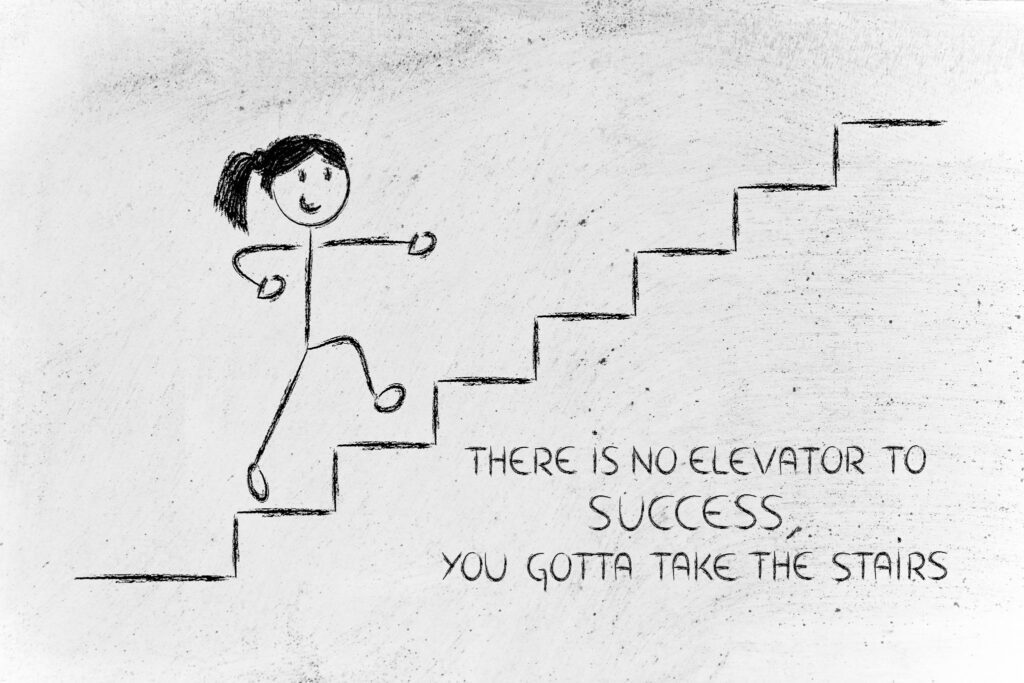 |
|---|
What is small business marketing?
Small business marketing is any activity involving the advertising and promotion of a small business. This also includes market research plus campaign planning, testing and analysis.
#1 Creating An Effective Small Business Marketing Plan
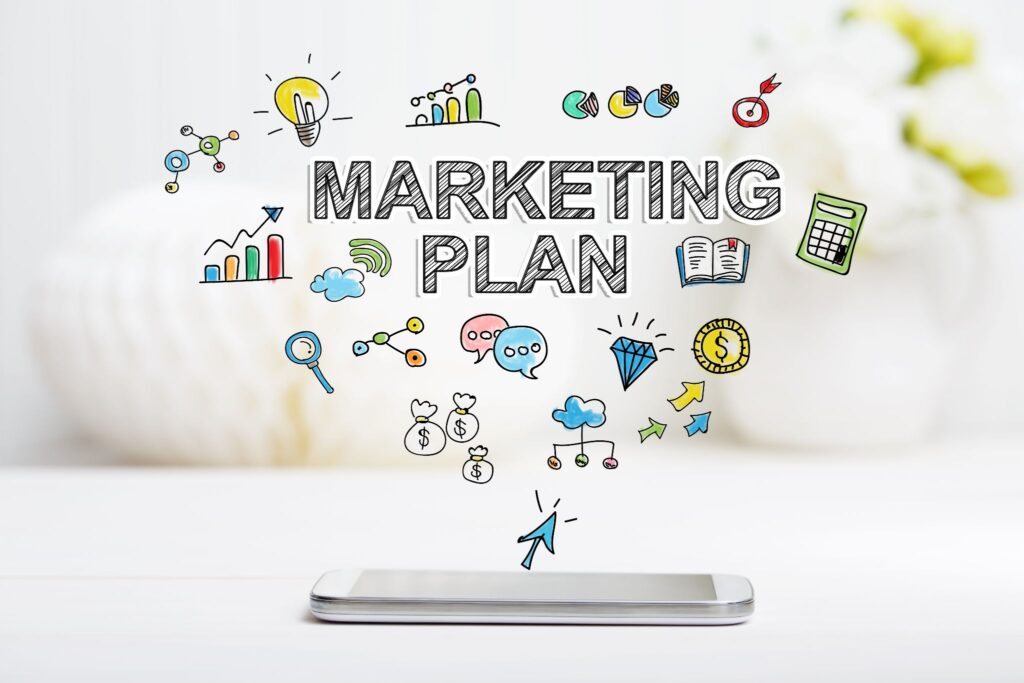
Know your customers. Know your competitors.
More importantly, know who you are.
Without this knowledge all marketing is futile. Time to do your homework…
- Conduct Market Research
- Competitor Analysis
- Perform Keyword Research
- Create An Elevator Pitch
- Find Your Brand Identity
Take all the time you need here because doing this correctly now saves you a lot of heartache in the long run. Of all the small business marketing tips in this article, this one is the most important.
Build your buyer personas, fine-tune your Unique Selling Position (USP) – these form the bedrock of all your marketing from here on in.

Your small business marketing budget should reflect the fact that you’ll have more outgoings starting off but more cumulative returns down the line.
Marketing Strategy Small Business
Build up your marketing infrastructure by registering your domain(s) and choosing your hosting.
Four small business marketing services best left to professionals are:
This is also the order you should hire them in.
The graphic designer gets professional photos for print materials and will create your logo and visual branding.
Assisted by a brief and your buyer personas, your copywriter distils your USP into engaging web, email and ad copy.
Your web designer uses your photos, graphics and copy to create your website.
Forget DIY website platforms, they’re useless for SEO – use WordPress.
And learn SEO – it’s the most important marketing skill you can have in the 21st century, more than social media.
So focus on that, set up your Google Analytics and Search Console, forget about paid search ads for now (too expensive) and start to think local.
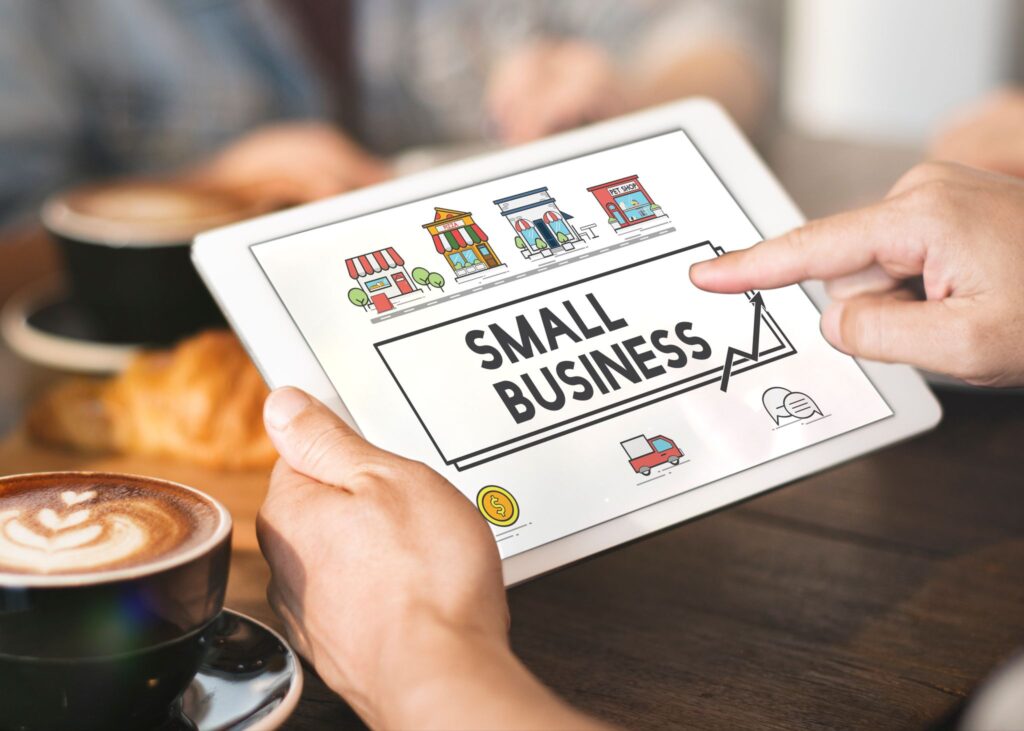
Local Marketing
Once you have slick professional photos and a functioning website it’s time to optimise your local marketing.
Set up your Google My Business listing, plus Apple Maps, Bing and any other relevant listings (e.g. Trip Advisor for restaurants).
Social Media
Social media marketing begins with setting up accounts on the main platforms:
And, as with all channels, the golden rule of social media marketing is to follow your audience.
If they’re on Facebook, use Facebook more. If you’re targeting professionals, you’ll get a better response on LinkedIn. And if they’re younger get on Instagram and Tiktok.
The networks you use should also reflect the nature of your business. If you’re in the photography business it makes sense to be on Instagram but if you’re a mortuary, maybe not so much.
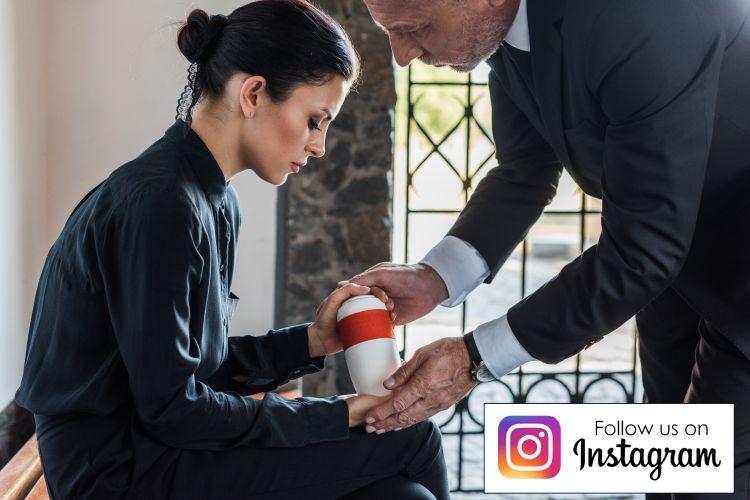
Know your audience!
“Social platforms for” + your industry to find niche networks.
Finally, get your content calendar ready so you can start planning ideas.
#2 CRM & Email Marketing
Now it’s time to tie all your marketing collateral together using Customer Relationship Management (CRM) software.
CRM software helps track your customers, sales, and campaigns and can integrate with other marketing channels, including your social media and email marketing.
Your options range from free CRM software to more powerful premium platforms. Popular options include:
Take your time, shop around, read reviews, research features and compare prices. Make sure you find a solution that suits the exact nature and size of your business, while still allowing it to scale.
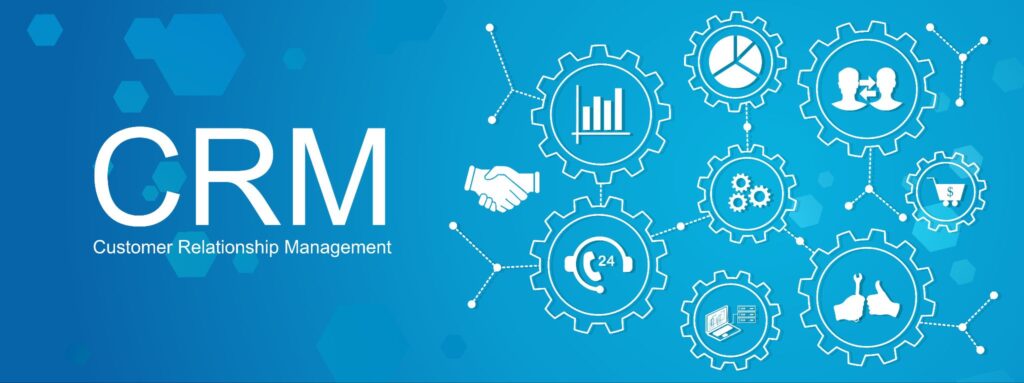
Small Business Marketing Automation
CRM software is like a Swiss Army knife for all your marketing goals, allowing you to:
- boost sales
- improve customer service
- convert leads
- track, segment and engage with customers
- automate tasks and messages
- run promotions and customer referral programs
- create detailed reports
With automated messaging, your clients feel valued throughout every stage of their journey.
You can track the effectiveness of campaigns across multiple channels, helping you learn from past successes and create more accurate budgets in future.
Email Marketing – More Effective Than You Might Think
Email marketing is one of the most impactful and cost-effective forms of marketing.
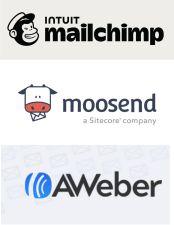
According to research, email marketing provides average returns of $44 for every $1 spent, so it makes sense to ensure you get set up correctly early on.
While some CRM platforms include email marketing as part of their offering, many small business marketers still opt to use standalone email marketing platforms, such as MailChimp, Moosend or Aweber.
Again, you’ll need to do your homework to find the solution that suits you best.
How To Use Email Marketing To Nurture Leads
Email marketing is opt-in, which means your subscribers are already interested in your company.
But instead of hitting them hard with sales messages, reward them by ensuring every email they receive provides value.
Lead with useful information on topics they care about and then mention your new products and promotions.
Provide value, regularly and consistently.
5 Email Marketing Tips To Boost Your Bottom Line
- Segmentation: Split subscribers into groups to send more targeted messages. For example, a pet supplies store might have groups for “cat lovers” and “dog lovers”.
- Personalisation: Increase your conversion rate by using more personalised emails.
- Clarity: keep your emails short, to the point and easy to skim.
- Consistency: Find the best time to send emails and stick to that schedule.
- Immediacy: Increase your open rates by employing proven headline hacks.
#3 Social Media Marketing For Small Business
Following social media best practices will help your small business maximise its social media marketing efforts, so:
- Create a content calendar
- Create a posting policy
- Use hashtags properly
- Use tagging properly
- Always add value
What you post is important, but so is when. Be consistent in your timing and always respond to messages and comments promptly.

When and how you respond to negative comments has a major impact on your reputation so your company’s posting policy should reflect this.
Social Media Advertising – High Impact, Low Cost
Social media advertising is a swift, targeted way to reach your audience.
It’s also less complicated and far more affordable than search advertising, meaning it’s well worth leveraging early on.
If you follow social media ad best practices, you can build brand awareness and run promotions for immediate returns.
Measure your results carefully so you know exactly where to put the majority of your efforts and spend in the future.
Small Business Social Media Ideas
If your content calendar is looking empty, get some ideas on Google Trends and look up weird national days.
Find some trends and topics which match your business then prepare content and run tie-in social media contests and promotions to delight your customers.
B2B businesses, meanwhile, can gain clients hosting online events like LinkedIn webinars.
#4 Content Marketing
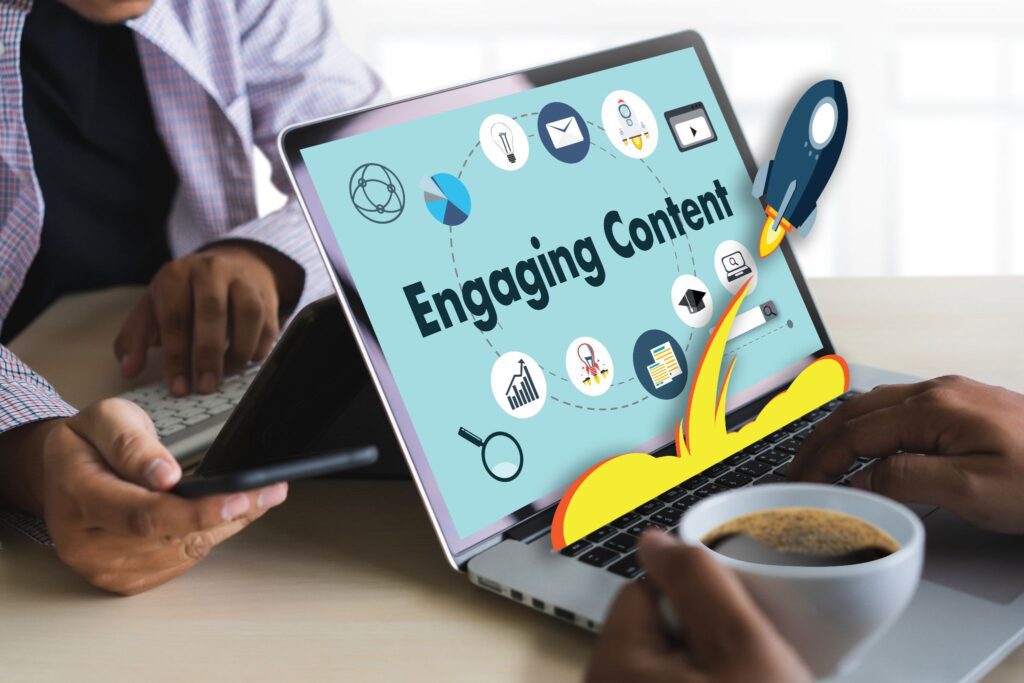
Content Marketing is a form of online marketing for small business known as inbound marketing. Rather than advertising your services to customers directly, you’re creating media designed to engage their interest first.
Then, once you’ve got their full attention and built up their trust, they will become more receptive to your messaging overall, and more likely to become customers.
There are many long-term benefits of content marketing. According to research:
QUOTE: “Content marketing generates over 3x as many leads as outbound marketing and costs 62% less” [source]
Instead of ad campaigns that last just a few days, content such as blog posts can bring in customers months or even years after publication.
Content marketing helps build brand awareness and establish you as an authority in your field, not just in the eyes of your customers, but also with search engines like Google.
It amplifies your marketing efforts, from email marketing to social media and SEO, especially if you get into the habit of recycling and repurposing content for different channels.
Content Marketing Examples

Content marketing spans the full range of online multimedia, including:
- Blogs
- Ebooks
- Infographics
- Presentations
- Podcasts
- Video
Small Business Blogging
Successful small business blogging requires planning and focus.
One of the biggest mistakes when blogging for small business is constantly banging your own drum.
Instead, you should work to build trust and establish your expertise by providing value to your audience.
By putting your users’ needs first and following blogging best practices, you’ll turn your company blog into a powerful lead-generation machine.
Here’s some blog post templates.
Here’s some more blog post templates plus a big massive list of blog post ideas to get you inspired.
Ebook Marketing
Ebook marketing is another proven method to build brand awareness and loyalty.
You can create new content from scratch, or just compile all your most valuable information from your blog together.
Add in some eye-grabbing images plus full contact information, export it in an easy-to-download PDF format – and voila! – you have a lead-generating ebook you can share on social media or use to build your email list.
Reuse, Remix, Recycle

Content marketing takes time.
And if you are also outsourcing much of it, the costs can add up too.
So get in the habit of repurposing content as much as possible.
Just like in the ebook example above, you can also re-syndicate your posts on LinkedIn and Medium to reach a wider audience, while also creating abridged versions to share with your email subscribers.
Got some old PowerPoint presentations? Import them into Canva and give them a hot new remix.
Any more presentations or product demos coming up? Record them!
If they’re recorded correctly and the content’s good you might be able to use the audio as a podcast, or combine the audio and slides in Canva to turn them into a video…
#5 Video Marketing
Video marketing is instant and immediate. It builds brand recognition, drives engagement and boosts SEO by keeping visitors on your website longer.
What once required a full team with professional equipment can now be done with a smartphone and free video editing software.

Unlike photography, which is best left to professionals, sometimes authenticity,
rather than slick production values, performs best.
You can even use video in your email marketing to increase open rates by up to 19% and your clickthrough rates by up to 50%.
Tips For Using Video Marketing
Research your target market to increase your chances of success.
And stay on brand! (Nobody wants to see TikTok-twerking tax lawyers!)
Optimize for mobile first (don’t autoplay with sound) and always follow video marketing best practices.
YouTube For Small Business
Setting up a YouTube channel for your small business is simple and can bring you massive exposure.
Take the time to optimize your channel and brand it properly and add a regular publishing schedule to your content calendar.
Make sure to use proper tagging and take the time to create accurate subtitles, as this increases the chances that people find your videos and watch them.
Experiment with different lengths and styles, measure results carefully and don’t be afraid to integrate your YouTube videos into your other marketing channels.
#6 Local Marketing Ideas
Right, get up, switch off, time for some fresh air!
You need to be out there mingling and meeting people, telling them about your new business.

When someone asks, “do you have a business card?” the answer must always be yes.
First stop – your local print shop.
All the local print shops.
But don’t just enquire about prices. Find a time when they’re not busy and talk to them about your business and build a relationship with them.
Print your business cards, flyers and posters with unique QR codes for each, all pointing to dedicated landing pages. This allows you to track the effectiveness of your print marketing digitally, through Google Analytics, so you can calculate their ROI.
Because they cost pennies to print, the ROI on posters and flyers can often be superior to many forms of online advertising, just be sure to research the laws on flyer posting in your locality first.
Small Business Marketing Ideas That People Love
Everyone loves swag; branded pens, notebooks, quality t-shirts, hoodies, hats…
Offer to give away some of your products/services for free, with some added branded swag, at community and charity events.
It’s free advertising and it’s for a good cause.
Having a branded “goodie bag” always works well when running campaigns on social media too.
People love to get free stuff – whatever it is – and in return, you get free advertising and higher social engagement.
How Do I Market My Small Business Locally?

Learn the art of networking and get involved in your local community and business groups, like your local chamber of commerce and Rotary.
Throw a grand opening celebration for your business with a local celebrity cutting the ribbon.
Present free product demos. Offer free training. Give a free presentation on a topic which is of value to attendees and is suitably newsworthy for the media to cover it.
#7 Measuring Success
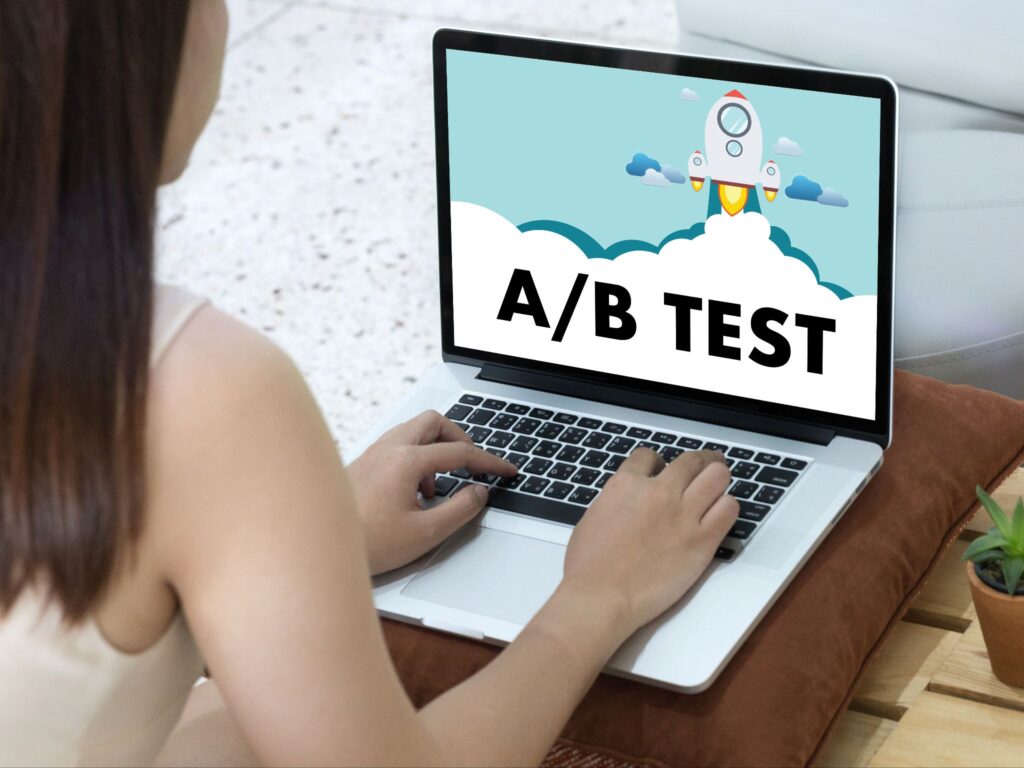
Test everything – especially your assumptions.
Don’t just fire in the dark, find out what WORKS.
Measure the ROI for all the marketing you do and familiarise yourself with other key marketing metrics.
Learn the art of A/B testing and apply it to everything; your ads, your emails, and your landing pages.
Focus on what works, refine it and retest it.
Then test it again.
More Small Business Marketing Strategies
You’ve optimised your core marketing channels. Your campaigns are outperforming all expectations and you have a growing community of loyal happy customers.
Time to build on that success with some next-level marketing ideas:
- Mobile Marketing
- Pay Per Click Advertising
- Display Advertising
- Affiliate Marketing
- Influencer Marketing
Growing Your Business
Small business marketing is an ongoing process.
As you hone your skills, develop your strategies and build on your successes your business will continue to grow.
Increased profits means higher budgets and more opportunities. You can start exploring new marketing channels while hiring more staff to help you.
Until you finally realise you’re not running a small business anymore. All those long hours and careful budgeting have paid off. You’ve hit the big time!

